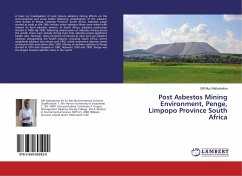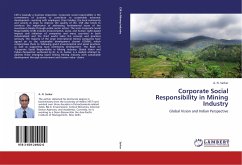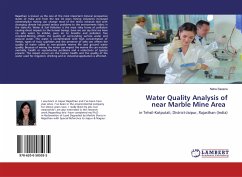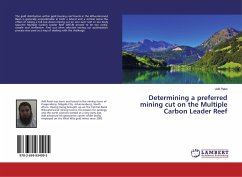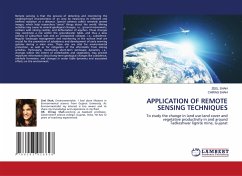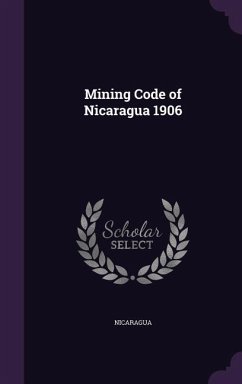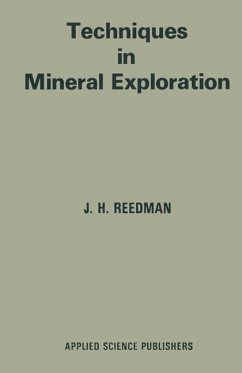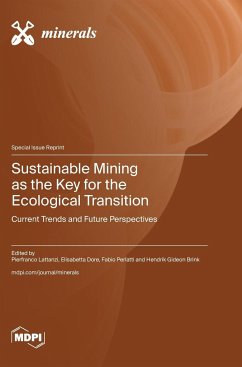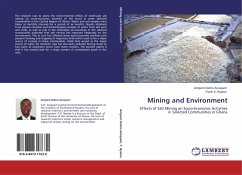
Mining and Environment
Effects of Salt Mining on Socio-Economic Activities in Selected Communities in Ghana
Versandkostenfrei!
Versandfertig in 6-10 Tagen
32,99 €
inkl. MwSt.

PAYBACK Punkte
16 °P sammeln!
The research was to assess the environmental effects of small-scale salt mining on socio-economic activities of the locals in some selected communities in the Central Region of Ghana. Water and soil samples were taken at monthly intervals for a period of six months. Results obtained from physico-chemical and bacteriological analysis of water from salt pans and wells, as well as soils in the immediate surroundings of the selected communities indicated that salt mining has impacted negatively on the environment. This in turn has affected some socio-economic activities such peasant farming and tr...
The research was to assess the environmental effects of small-scale salt mining on socio-economic activities of the locals in some selected communities in the Central Region of Ghana. Water and soil samples were taken at monthly intervals for a period of six months. Results obtained from physico-chemical and bacteriological analysis of water from salt pans and wells, as well as soils in the immediate surroundings of the selected communities indicated that salt mining has impacted negatively on the environment. This in turn has affected some socio-economic activities such peasant farming and trapping of migratory birds which used to be a major source of income in these communities. Wells that served as the major source of water for domestic uses has also been polluted forcing locals to buy water at exorbitant prices from water vendors. The positive aspect is that it has created jobs for a large number of unemployed youth in the area.



